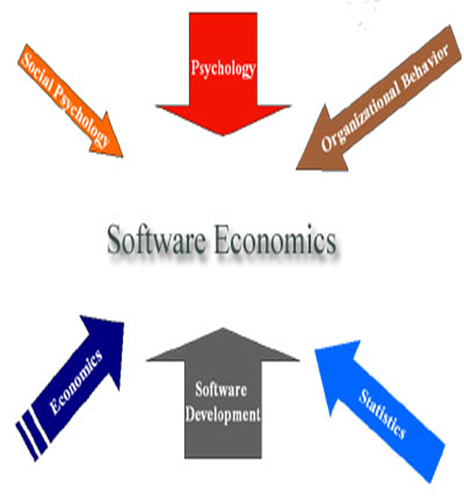Software economics is the study of how limited project resources are allocated for software projects. Software economics helps software managers allocate those resources in the most efficient manner. Like, the process of counting function points, gathering data, analyzing data is commonly referred to as Software Metrics, but in reality, it is a branch of economics that should be called as Software Economics. Software economics is situated at the intersection of information economics and software design and engineering.
The goal of software economics is to understand the relationships between economic objectives, constraints, conditions, and technical software issues.
Software economics includes the following factor:
1.Psychology
2.Software Size (Line of Code)
3.Organizational Portfolio
4.Technology use
5.Human Resource
6.Sales After Service
7.Risk Factor
8.Software Quality
9. Time Require to develop software Product
10.Social Feedback and Software Reliability




